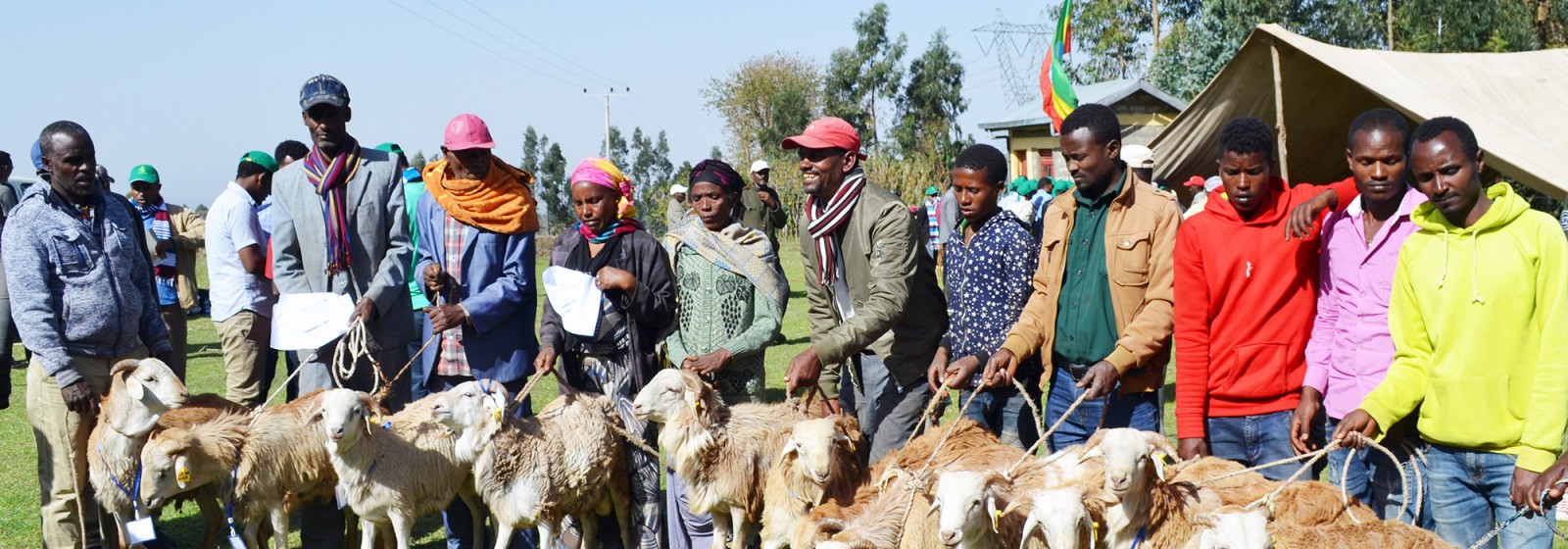Community-based breeding programs (CBBPs) for small ruminants have been suggested as alternatives to centralised, government-controlled breeding schemes which have been implemented in many developing countries.
In recent years, with support from the CGIAR Research Program on Livestock and other investors, an innovative methodological framework on how to design, implement and sustain CBBPs has been tested in Ethiopia. This article reports on ten-year (2009-2018) results and breeding performance data and socioeconomic outcomes from three research sites: Bonga, Horro and Menz.
The results show that CBBPs are technically feasible, result in measurable genetic gains in performance traits and impact the livelihoods of farmers.
Read the open access article:
Haile, A., Getachew, T., Mirkena, T., Duguma, G., Gizaw, S., Wurzinger, M., Soelkner, J., Mwai, O., Dessie, T., Abebe, A., Abate, Z., Jembere, T., Rekik, M., Lobo, R.N.B., Mwacharo, J.M., Terfa, Z.G., Kassie, G.T., Mueller, J.P. and Rischkowsky, B. 2020. Community-based sheep breeding programs generated substantial genetic gains and socioeconomic benefits. Animal.
https://hdl.handle.net/10568/107977 / https://doi.org/10.1017/S1751731120000269
More:
